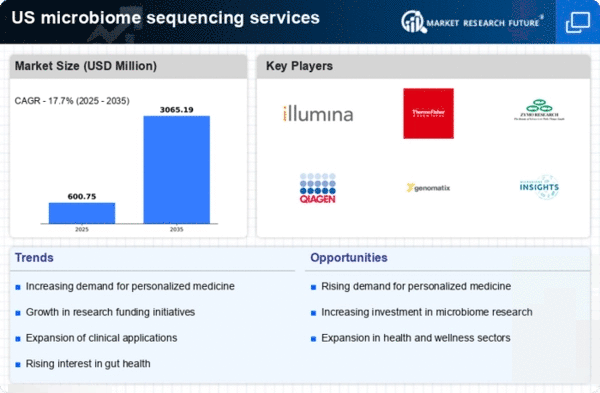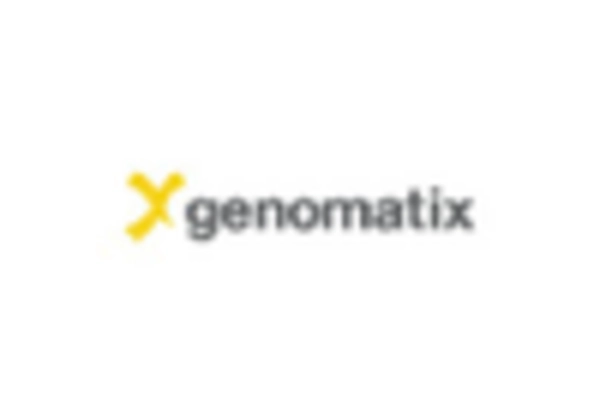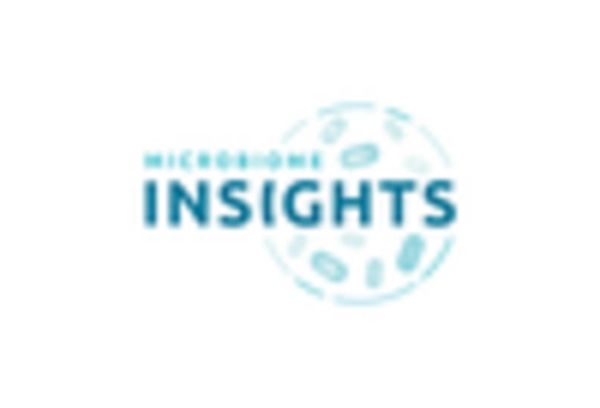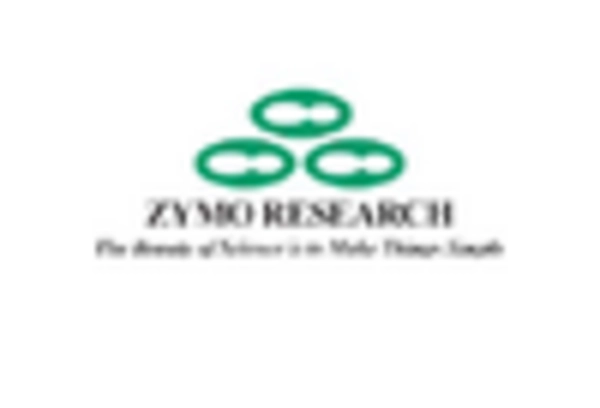Expansion of Clinical Applications
The microbiome sequencing-services market is witnessing an expansion of clinical applications, which is significantly driving its growth. As research continues to unveil the connections between the microbiome and various health conditions, including obesity, diabetes, and autoimmune diseases, the demand for sequencing services is likely to increase. For instance, studies have shown that specific microbiome profiles can predict responses to treatments, thereby enhancing patient outcomes. This trend is reflected in the increasing number of clinical trials focusing on microbiome interventions, with over 200 trials registered in the US as of late 2025. Such developments suggest that the microbiome sequencing-services market is becoming integral to modern clinical practice, as healthcare providers seek to leverage microbiome insights for improved patient care.
Growing Demand for Personalized Medicine
The microbiome sequencing-services market is experiencing a notable surge in demand for personalized medicine. As healthcare shifts towards individualized treatment plans, understanding a patient's unique microbiome composition becomes crucial. This trend is driven by advancements in genomics and a growing body of research linking microbiome health to various diseases. The market is projected to reach approximately $1.5 billion by 2026, reflecting a compound annual growth rate (CAGR) of around 20%. This growth indicates a strong inclination towards tailored therapies, which rely heavily on microbiome analysis. Consequently, the microbiome sequencing-services market is positioned to play a pivotal role in the evolution of personalized healthcare, as clinicians increasingly utilize microbiome data to inform treatment decisions.
Increased Focus on Preventive Healthcare
The microbiome sequencing-services market is benefiting from an increased focus on preventive healthcare. As healthcare systems shift from reactive to proactive approaches, understanding the microbiome's role in health maintenance is becoming paramount. Research indicates that a balanced microbiome can prevent various diseases, leading to a growing interest in microbiome testing as a preventive measure. This trend is reflected in the rising number of consumers seeking microbiome analysis to inform lifestyle and dietary choices. The market is projected to grow as more individuals recognize the potential of microbiome insights in preventing health issues, thereby driving demand for sequencing services. This shift towards preventive healthcare suggests that the microbiome sequencing-services market will continue to expand as awareness increases.
Regulatory Support for Microbiome Research
Regulatory support for microbiome research is emerging as a key driver for the microbiome sequencing-services market. Government agencies in the US are increasingly recognizing the importance of microbiome studies in understanding health and disease. Initiatives aimed at funding microbiome research and establishing guidelines for microbiome-based therapies are likely to enhance the market landscape. For instance, the National Institutes of Health (NIH) has allocated substantial funding towards microbiome research, which is expected to foster innovation and development in this field. This regulatory backing not only encourages research but also instills confidence in investors and stakeholders, potentially leading to increased market growth. As regulatory frameworks evolve, the microbiome sequencing-services market is poised to benefit from enhanced legitimacy and support.
Technological Innovations in Sequencing Techniques
Technological innovations in sequencing techniques are significantly influencing the microbiome sequencing-services market. The advent of next-generation sequencing (NGS) technologies has drastically reduced the cost and time associated with microbiome analysis. This has made sequencing more accessible to researchers and healthcare providers alike. As of November 2025, the cost of sequencing a human microbiome has decreased to approximately $500, a stark contrast to the $10,000 cost just a few years prior. Such advancements not only enhance the accuracy of microbiome profiling but also facilitate large-scale studies, thereby expanding the market's potential. The continuous evolution of sequencing technologies indicates that the microbiome sequencing-services market will likely see sustained growth as these innovations become more widely adopted.
















